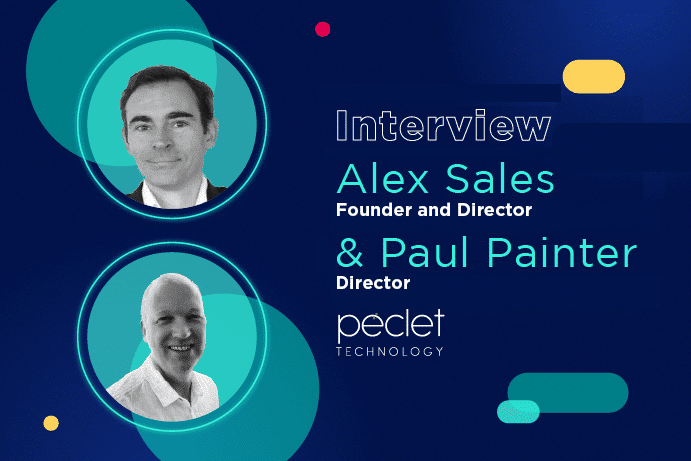How to build smart cities thanks to open data – the view from Australia
Organizations across the world are increasingly looking at how they can turn their data into value by sharing it with their internal and external communities. To find out what is happening in the Australian market we interviewed Opendatasoft partner Peclet Technology.

As part of its global strategy, Opendatasoft has built a strong collaboration with its Australian partner Peclet Technology. This focuses on Peclet using ODS to help its customers create smart city applications, built on open, easily-accessible data. To understand more about the market down under we spoke to Alex Sales and Paul Painter of Peclet, who talked to us about the importance of smart cities, smart trees and even smart beaches!
What is Peclet’s mission and how do you help cities?
Alex: I founded Peclet Technology in 2015. The vision was simple – to develop and bring innovative Internet of Things and data sharing solutions to Australia. I met Paul in 2017 and this is when the business really started: we got our first clients and started building a team.
Our focus is around data. We want to help our customers (currently mostly in the government sector) to generate more value from their data by bringing it to life and creating new services from that data. We provide turnkey solutions that are simple to implement, and deliver most requirements through configuration, leading to faster projects. We thrive on applying our data expertise to solving contemporary challenges particularly in relation to smart cities, and how data can help cities in becoming more sustainable while enhancing the resident experience.
We’ve now grown to having over 25 customers across local and state government and the private sector, many of whom have won awards for the solutions we’ve helped them develop.
What is currently driving the Australian market when it comes to data sharing?
Paul: Due to geography, the Australian market is very different to Europe and the US. While Australia is enormous – about the size of the continental USA – it only has a population of 25 million people. 11 million of these are in the main cities of Sydney and Melbourne. This means the rest are in quite small towns and cities, run by around 540 councils. So while there are government regulations about opening up public data, often councils don’t have the resources or data specialists to immediately understand the opportunities that open data brings.
Instead, we’ve seen a major focus on smart cities, supported by government funding. This provides really clear use cases and benefits. In fact, the majority of our projects to date are around smart cities, where we create solutions that combine real-time data from IoT sensors and display it through engaging dashboards and other experiences. This really plays to the strengths of the Opendatasoft platform, which is great. ODS also combines really well with the IoT sensor management platform provided by our other key partner Ubidots.
How are you demonstrating the benefits of smart cities and open data?
Paul: As I’ve said we need to educate the market about the benefits of open data, so we invest heavily in showcasing our clients’ successes and what solutions can deliver.
For example, in 2021 we launched our data.peclet.com.au site. This showcases over 15 practical smart city use cases, sample open data portals and reusable dashboards. These are all underpinned by real data and projects built with our clients. The idea is to provide a tangible resource that shows what can be done in terms of smart city and open data projects. It has proven really popular – we’ve even had members of the public and academics using it to consume particular data sets!
The second part of demonstrating value is by highlighting our customers’ success through a comprehensive awards program. We’ve seen clients such as Randwick City Council and Western Parklands (a partnership of 8 councils), win or be shortlisted in a range of awards such the IoTAA Awards for Smart Cities and the iTnews Local Government Sector Awards. It’s great to see them get the recognition they deserve.
What sort of smart city use cases are you working with customers on?
Paul: What’s exciting is that there’s a real range of use cases, from weather and air/water quality monitoring to urban forests, transparency, and parking.
Randwick City Council: Taking open data to the beach
Randwick has created the world’s first “smart beach.” It is using data to optimize the visitor experience at Coogee beach, including by providing digital aquatic safety boards, improved water and landside safety, traffic and parking management, amenities servicing and mashing up of Council and other open data to present a unified view to the beachgoer.
City of Geelong: Engaging the community with open data
The City of Geelong has also created a wide range of use cases. Its Weather Together project recruited volunteers to host weather sensors in their home or workplace. Involving the community provides a real-time picture of temperature and weather across the city, while encouraging people to get involved and access the data in their day-to-day lives.
Geelong has also focused on urban forest use cases. It started by providing information on all the trees in the city through a dashboard, but has now taken this further, engaging the community through its Hollow Hunt initiative. This allows anyone to use their smartphone to record a hollow within a tree, fill in a form with its details, take a photo and drop a pin on the map to show its location. This is then recorded in ODS, verified and made available via the urban forest dashboard. Both of these Geelong use cases show how you can engage the community and get them recording – and using – data.
Western Parklands Councils: Managing a growing population
Eight councils in western Sydney have been working together on the Western Parklands Councils Sensor Network Project. This aims to help them monitor and manage a predicted population increase in the area, while streamlining efficiency. At its heart is a shared network of sensors, measuring water and air quality, heat, noise and people and vehicle movements. This is connected to data analytics and the ODS platform, and is a finalist at this year’s iTNews Local Government Sector Awards.
How do you work with Opendatasoft?
Alex: I originally came across Opendatasoft back in 2015. That was when Australian councils began to open their data – something that I think had been mandated in France much earlier. I was very impressed with the sophisticated portals that French councils had developed, and after some research realized that all the best solutions were created by Opendatasoft. So I made contact and offered to help bring their technology to market in Australia. We signed our first customer in 2018 and the rest is history!
Even though we are on other sides of the world we’ve got an excellent working relationship – I normally visit them every couple of years and we spend a lot of time on the phone with Fred, our partner manager, and a whole range of ODS technical and sales people. They are all very supportive and there’s a lot we can learn from other ODS customers that will benefit our clients.
What are your future plans?
Alex: Momentum is really building around sharing and using data in better ways. That means ideas around open data are spreading from the public sector to other industries. For example, we have one client that is using ODS to provide a dashboard for its property clients, giving them all the information they need on their portfolio in a single place.
Alex: As in other countries, utilities are becoming increasingly interested in opening their data too. There’s no legislation to yet make this mandatory, but we’re talking to a lot of utilities who want to increase the value they get from their data. Using other ODS client experience, such as UK Power Networks is invaluable in helping explain these benefits.
Paul: Also, I’m originally from New Zealand, and now that borders have reopened there’s a lot of potential in that market. I’m looking forward to leading our efforts there.
Find out more about Peclet Technology and a whole range of smart city and open data use cases on their portal.




